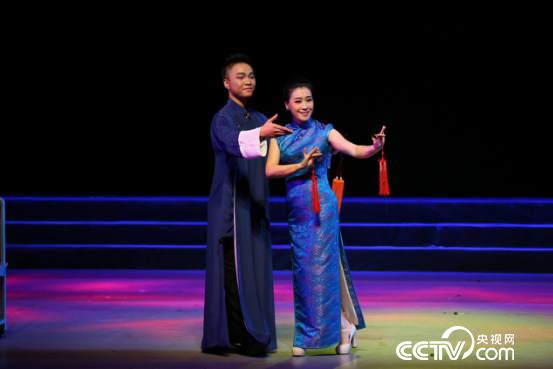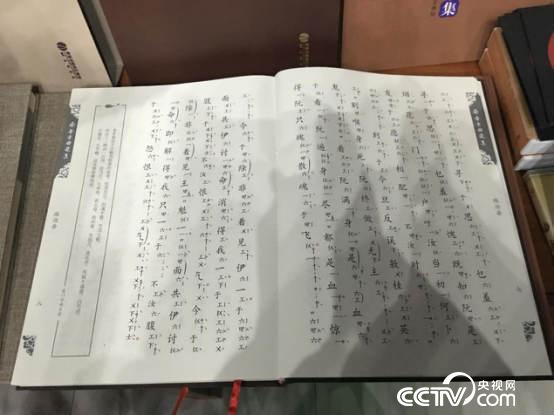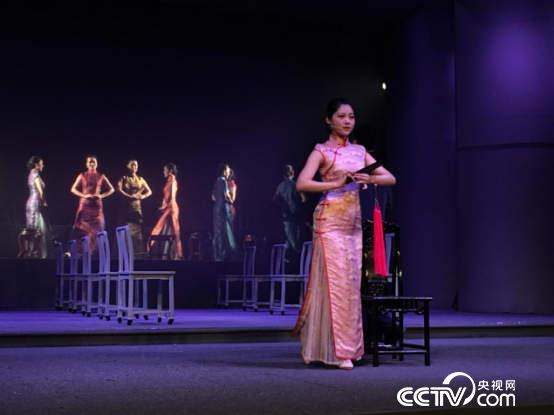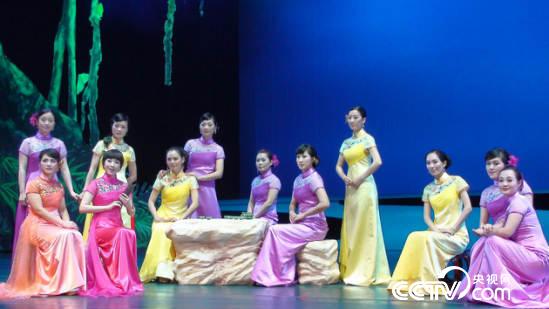[Brics Story Charm Xiamen] The "living fossil" of music culture glows with a new "sound" machine.
Cctv news(Reporter Wang Xiaoying) Nanyin, also known as "Xianguan", is one of the oldest existing kinds of music in China. It came from the Central Plains to southern Fujian, and has preserved the traditional and ancient folk singing methods before the Tang Dynasty, singing classics in Minnan, and is called the "living fossil" of music culture.
Founded in 1954, Xiamen South Orchestra is one of the only two professional performing groups of Nanyin in China. In recent years, Nanyin has made great efforts to innovate and cultivate talents, and a group of post-90 s and even post-95 s students have participated, which has given Nanyin a new "voice" machine.

Nanyin oratorio "Jin Shi Yin"
Compilation of reference books and promotion of Nanyin’s first computer-generated scale edition published at the end of the year.

The score of Nanyin Gongchi Score, which was independently developed by the South Orchestra, was played by computer scoring software.
Xiamen South Orchestra is located in the west gate of Sun Yat-sen Park, a historic building with southern Fujian classical garden style — — — In "Nanyin Pavilion", its predecessor was Xiamen Jinfengnan Orchestra.
Mr. Ji Jingmu, the first head of the Southern Orchestra, was highly accomplished and was praised as a "great master" and a "master of southern music" by the southern music circles at home and abroad. During his lifetime, he compiled more than 500 pieces of traditional southern music and created many new pieces, among which the instrumental music "Fishing Songs in the Bohai Sea" jointly created by colleagues in the music industry was praised as the fourteenth set of southern music.
Thanks to the guidance of Ji Jingmu, Bai Hou, Ren Qingshui, Bai Lihua, Lin Yuyan and other famous teachers, Nanle Troupe not only abides by the previous law, but also dares to innovate, forming a unique artistic style. In terms of instrumental performance, Xiamen South Orchestra pays attention to the tacit cooperation between musicians, especially the skill of playing the flute string in the cave, which is highly respected in the southern music circle; In singing, it pays attention to "emphasizing rhyme over lightness" and "clear pronunciation and mellow voice", which has been praised by southern music circles at home and abroad for decades.
In recent years, the Southern Orchestra has adhered to the road of attaching equal importance to inheritance and innovation. On the one hand, it has continuously excavated and sorted out traditional tracks, on the other hand, it has actively created Nanyin masterpieces and actively participated in various national art competitions, winning awards frequently.
In 2010, Nanyin’s Gathering in Baodao won the program award of "Peony Award, the highest award of China Quyi", becoming the only play in Fujian Province and one of the five in China that won this honor.
Yang Xueli, head of Xiamen Nanyin Orchestra, introduced that since 2015, Nanyin Orchestra has started the data rescue and protection plan, and edited and published the Selected Works of Nanyin Ancient Music by using the self-developed Nanyin Gongchi notation computer scoring software. This selection is the first in Xiamen Nanyin community and the first Nanyin score in Xiamen, which has become an indispensable reference book for Nanyin lovers, providing a more detailed Nanyin reference book for Nanyin practitioners and enthusiasts, and standardizing the singing scores of Xiamen schools. At present, they are editing and proofreading Xiamen’s first computer-generated version of the Complete Works of Nanyin Finger Spectrum, which is expected to be published by the end of this year.
After 90, students joined the new "sound" machine that glowed with Nanyin.

Xu Dani on the stage
Born in 1996, Xu Dani was influenced by her aunt who sang Nanyin. She entered Xiamen Art School at the age of 15 in 2011 and began to try to learn Nanyin.
"Although Nanyin is sung in Minnan, she can speak Minnan and may not be able to sing Nanyin." Xu Dani said that it was difficult to learn at first, and the pronunciation and articulation were very demanding, especially it was difficult to adapt to the slow rhythm of Nanyin.
Yang Xueli introduced that Nanyin really pays attention to articulation, and its tunes are euphemistic, simple and elegant.
Many gestures and movements of Nanyin are delicate and exquisite. The longer the contact, the more beautiful it feels, and the slow performance rhythm of Nanyin as a whole is easy to calm people down. After studying, Xu Dani fell in love with Nanyin. In 2014, she began to perform on stage.
In order to cultivate talents, Nanle Orchestra and Xiamen Art School jointly run a school, and sent old masters and top teachers to participate in Nanyin professional teaching. There were 17 students studying with Xu Dani, and these post-90 s students also injected new vitality into Nanle Orchestra.
"In the past, the performance form of Nanyin was relatively simple, such as four stations and one singing." Xu Dani said that their new students, on the basis of the original, asked the master to innovate. At present, many popular elements have been added to the repertoire, such as accompaniment chorus, percussion and other Chinese and Western instruments.
Although she excels in some tracks, Xu Dani still feels that compared with the old masters, she has only learned a little, especially the most difficult part of Nanyin’s singing.
Yang Xueli told reporters that the new batch of post-90s or even post-90s students is actually very surprising. They have excellent skills and stick to the tradition. Many of them have made their mark in national, provincial and municipal events and made great achievements.
Go out of "Nanyin Pavilion" and fly overseas.

Nanyin’s performance "Gathering in Treasure Island" won the program award of the sixth China Quyi "Peony Award".
In order to let more people know about Nanyin, the Southern Orchestra took the initiative to perform in the campus and community, and will perform free of charge at Nanyin Pavilion on Sunday for the public to watch.
Yang Xueli introduced that the Southern Orchestra regularly organizes Nanyin training classes and Nanyin summer camps jointly with Nanyin Society and primary and secondary schools in Xiamen, or sends outstanding Nanyin performers into schools and communities to give lectures, and holds a session of Xiamen Nanyin Singing Competition every year, which has been held for 19 times so far, cultivating a group of new people, creating and producing a number of new works, and reviving Nanyin.
Nanyin is widely spread in Hongkong, Macau and Southeast Asian countries where Minnan people live, especially in Taiwan Province. Because of this, Nanyin is endowed with a special historical mission and will play an irreplaceable role in promoting cross-strait artistic exchanges, enhancing cross-strait cultural identity and maintaining cross-strait emotional ties.
On behalf of Xiamen City, Xiamen South Orchestra went to Taiwan to participate in the "Fujian Cultural Treasure Island Campus Tour — — Nanyin enters the campus "activity, and enters 11 colleges and universities in Taiwan Province to promote performances.
In recent years, the Southern Orchestra has been invited to visit the Philippines, Singapore, Japan, France, New Zealand, the Czech Republic, Hong Kong, Macao and Taiwan and other countries and regions, actively carrying out foreign art exchange performances, and promoting China’s excellent traditional culture to the world through the international stage, so that people can further understand the value and charm of Nanyin, a world heritage.